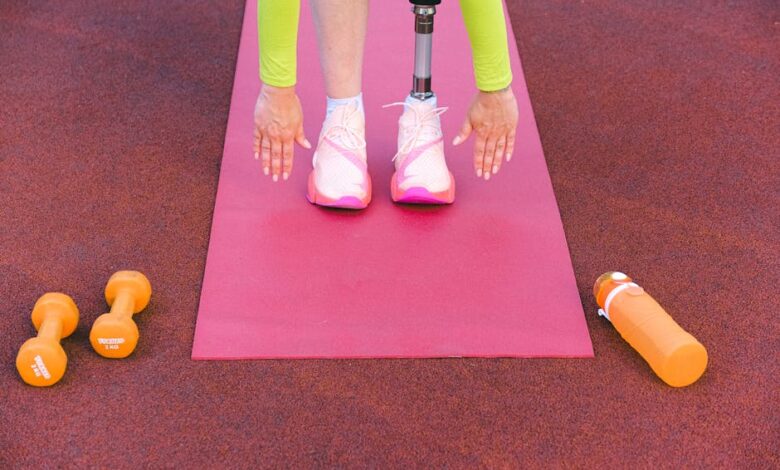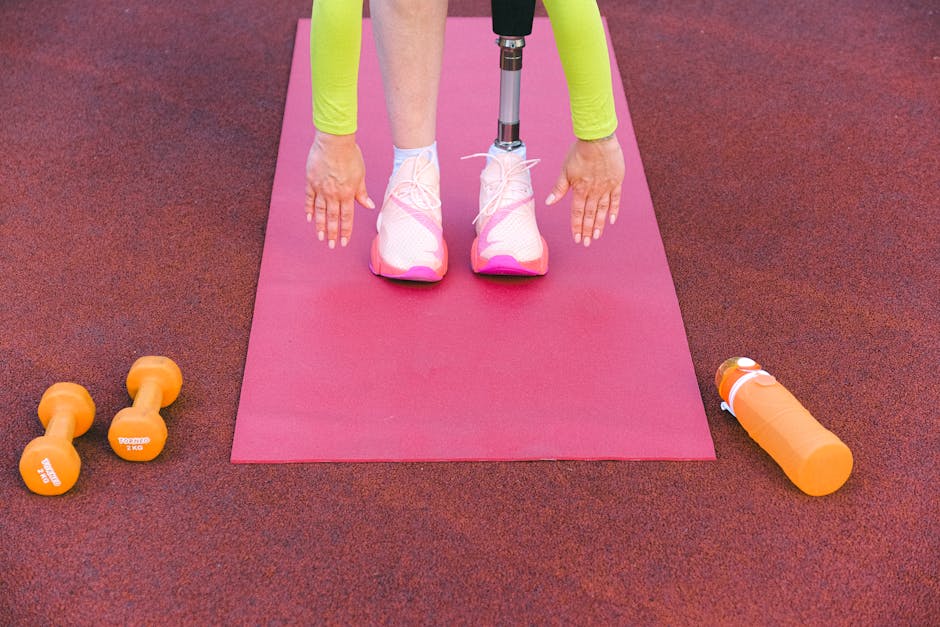
In today’s fast-paced world, staying fit and healthy has become more crucial than ever. One tool that has revolutionized the way we approach fitness is the fitness tracker. These innovative devices are not just fancy accessories; they are game-changers in the realm of personal health and wellness.
Fitness trackers come equipped with a plethora of features designed to help you monitor various aspects of your health. From tracking your daily steps to monitoring your heart rate, these devices provide real-time data that can be invaluable for anyone looking to improve their fitness levels. The ability to set goals, receive reminders, and get instant feedback makes a fitness tracker an indispensable part of any fitness routine.
Moreover, fitness trackers are not just for the gym enthusiasts. They cater to a wide range of users, from beginners who are just starting their fitness journey to seasoned athletes looking to fine-tune their performance. The versatility and adaptability of these devices make them suitable for all fitness levels, ensuring that everyone can benefit from their use.
Ready to dive deeper into how a fitness tracker can transform your workout regimen and overall health? Explore More at Muscle Theory and discover cutting-edge theories and routines that work in synergy with your fitness tracker.
How Fitness Trackers Improve Workouts

One of the most significant advantages of using a fitness tracker is its ability to enhance your workouts. These devices offer a suite of features that make your exercise sessions more effective and engaging. By providing real-time feedback and personalized data, fitness trackers ensure that every workout counts.
Firstly, fitness trackers help you monitor your heart rate during exercise. Knowing your heart rate zones can help you adjust your intensity levels, ensuring that you are working out at an optimal pace for burning fat or building endurance. This feature is particularly beneficial for interval training, where maintaining specific heart rate zones is crucial.
Another way fitness trackers improve workouts is by tracking your progress over time. By logging your workouts and comparing them week by week, you can identify patterns, set realistic goals, and celebrate milestones. This ongoing feedback loop keeps you motivated and focused on your fitness journey.
Additionally, many fitness trackers come with built-in GPS capabilities. This feature is invaluable for runners, cyclists, and outdoor enthusiasts who want to track their routes, distances, and speeds. By analyzing this data, you can optimize your routes and make informed decisions to improve your performance.
Lastly, fitness trackers often include customized workout plans. Based on your fitness level, goals, and preferences, these plans can guide you through various exercises, ensuring that you get a balanced and comprehensive workout. Whether you are into strength training, cardio, or flexibility exercises, a fitness tracker can provide the structure and support you need to succeed.
Tracking Progress with Fitness Trackers

One of the standout features of fitness trackers is their ability to help you track your progress meticulously. By offering a detailed overview of your activities, these devices enable you to measure your improvements and stay motivated.
Fitness trackers record a wide array of metrics, including steps taken, calories burned, distance traveled, and active minutes. This data is typically displayed in an easy-to-understand format on your device or a companion app. Having access to such comprehensive data allows you to set specific, measurable goals and monitor your progress towards achieving them.
An important feature of fitness trackers is their ability to track your sleep patterns. Quality sleep is essential for recovery and overall well-being. By analyzing your sleep cycles, duration, and quality, fitness trackers can provide insights and suggestions to improve your sleep hygiene. Better sleep leads to better recovery, which in turn enhances your workout performance.
Many fitness trackers also come with built-in reminders and alerts to keep you on track. For example, they can remind you to move if you’ve been sedentary for too long or notify you when you’ve reached your daily step goal. These reminders serve as gentle nudges to keep you active and consistent with your fitness regimen.
Another advantage is the ability to sync data across devices. Whether you’re using a smartphone, tablet, or computer, you can access your fitness data anytime, anywhere. This synchronization allows for a more holistic view of your health and fitness journey, making it easier to identify trends and make informed decisions.
Overall, tracking progress with a fitness tracker provides a clear and motivated path to achieving your fitness goals. By offering real-time data, personalized insights, and actionable feedback, these devices keep you engaged and committed to your fitness journey.
Enhancing Health with Fitness Trackers

Fitness trackers do more than just track your workouts; they play a crucial role in enhancing your overall health. By providing a comprehensive view of your daily habits, these devices can help you make informed decisions to improve your lifestyle.
One of the primary ways fitness trackers enhance health is by monitoring your heart rate. Many modern fitness trackers come equipped with heart rate sensors that provide real-time data. This information is invaluable for understanding your cardiovascular health. By keeping an eye on your heart rate during various activities, you can ensure that you’re exercising within your optimal heart rate zone, maximizing both efficiency and safety.
Another significant feature is the ability to track your caloric intake and expenditure. By logging your meals and snacks, you can get a clear picture of your daily caloric balance. Combined with the data on calories burned during physical activities, this helps you manage your weight more effectively. Whether your goal is to lose weight, gain muscle, or maintain your current physique, this feature provides the data you need to stay on track.
Fitness trackers also contribute to improving mental well-being. Features such as mindfulness and stress tracking can alert you to periods of high stress and suggest breathing exercises or relaxation techniques. By incorporating these practices into your daily routine, you can reduce stress levels and improve your mental health.
Hydration is another critical aspect of health that fitness trackers can help manage. Some advanced models come with reminders to drink water, ensuring you stay hydrated throughout the day. Proper hydration is essential for optimal bodily functions, including muscle recovery and cognitive performance.
Furthermore, fitness trackers often come with community features that allow you to connect with other users. This social aspect can provide additional motivation and support, making it easier to stay committed to your health and fitness goals.
In summary, by offering a wealth of data and actionable insights, fitness trackers empower you to take control of your health. From monitoring heart rate and managing stress to tracking caloric intake and staying hydrated, these devices are indispensable tools for anyone looking to enhance their overall well-being.
Different Types of Fitness Trackers
Fitness trackers come in various forms, each tailored to meet different needs and preferences. Understanding the different types can help you choose the best device for your fitness journey.
Basic Fitness Bands are the most straightforward option, designed primarily for tracking steps, distance, and basic activity levels. These devices are perfect for beginners or those looking to get a general idea of their daily activity. They often come with features like sleep tracking and basic heart rate monitoring, providing a solid foundation for anyone new to fitness tracking.
Advanced Fitness Trackers offer more comprehensive features. In addition to tracking steps and distance, these devices often include heart rate monitoring, GPS for tracking routes, and the ability to track specific workouts like running, cycling, and swimming. Some models even offer advanced metrics such as VO2 max and lactate threshold, making them ideal for serious athletes looking to optimize their performance.
Smartwatches with fitness tracking capabilities combine the functionality of a smartwatch with the features of a fitness tracker. These devices offer a range of health and fitness metrics while also providing smart features like notifications, music control, and contactless payments. Smartwatches are perfect for tech-savvy individuals who want an all-in-one device for both fitness and everyday use.
Specialized Fitness Trackers are designed for specific activities or sports. For example, there are fitness trackers tailored for swimmers that are waterproof and can track swimming metrics like lap count and stroke type. Cyclists can opt for trackers that integrate with bike computers and offer advanced cycling metrics. These specialized devices provide detailed insights specific to the activity, helping enthusiasts and professionals alike to improve their performance.
Finally, there are Hybrid Fitness Trackers that combine the look of a traditional watch with fitness tracking capabilities. These devices are perfect for those who prefer a more classic aesthetic but still want to track their activity and health metrics. They often come with long battery life and essential tracking features, making them a stylish yet functional choice.
Choosing the right fitness tracker depends on your specific needs and fitness goals. Whether you’re a beginner, a tech enthusiast, or a professional athlete, there’s a fitness tracker out there for you. Understanding the different types ensures you make an informed decision and select a device that will best support your health and fitness journey.
Choosing the Right Fitness Tracker

Selecting the perfect fitness tracker can be overwhelming, given the multitude of options available today. However, by focusing on a few key factors, you can find a device that aligns with your fitness goals and lifestyle.
First, consider your fitness objectives. Are you a beginner looking to increase daily activity, or an experienced athlete aiming to optimize performance? Basic fitness bands may suffice for beginners, while advanced fitness trackers or smartwatches with comprehensive features will better serve seasoned athletes.
Budget is another important factor. Fitness trackers range from affordable basic models to high-end devices packed with features. Determine how much you’re willing to spend and look for a tracker that offers the best value within your budget. Remember, more expensive doesn’t always mean better; it’s about finding the right balance of features and cost.
Next, think about the features that matter most to you. Do you need GPS tracking for outdoor runs, or is heart rate monitoring more important? If you’re into swimming, ensure the device is waterproof and can track swimming metrics. For tech enthusiasts, smartwatches with fitness capabilities might be ideal, offering a blend of technology and fitness tracking.
Consider the design and comfort of the device. Will you wear it daily or only during workouts? The tracker should be comfortable, durable, and suit your style. Some prefer the sleek look of hybrid fitness trackers, while others might opt for the sporty design of advanced fitness bands.
Battery life is another crucial aspect. If you don’t want to charge your device frequently, look for fitness trackers with longer battery life. Basic models typically last longer on a single charge compared to feature-rich smartwatches.
Lastly, check for compatibility with your smartphone and other devices. Ensure the fitness tracker works seamlessly with your phone’s operating system and any other fitness apps you use. Integration with your digital ecosystem can greatly enhance the overall experience.
Choosing the right fitness tracker involves evaluating your needs, budget, and preferences to find a device that will support your health and fitness journey effectively. Ready to find the perfect fitness tracker for you? Explore More at Muscle Theory and discover a range of options tailored to every fitness level and goal.



